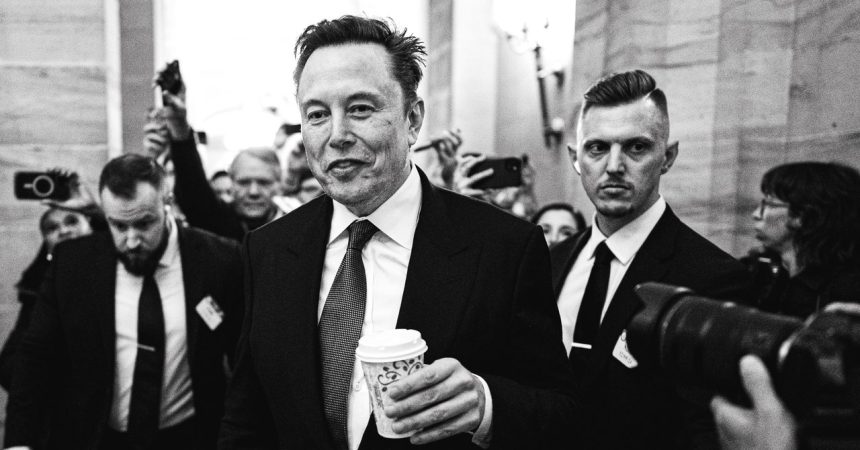The looming threat of a government shutdown has been dramatically amplified by the intervention of Elon Musk, the unconventional tech entrepreneur, who leveraged his social media platform, X, to derail a bipartisan funding bill. Within a mere 24 hours of Musk’s digital campaign, three Republican lawmakers unexpectedly proposed him as a candidate for Speaker of the House, a position traditionally held by a member of Congress. This unprecedented suggestion underscores the growing influence of non-traditional political figures and the disruptive potential of social media platforms in shaping political discourse and decision-making.
Senator Rand Paul initiated the surprising endorsement of Musk, arguing that electing a non-politician, particularly one with Musk’s disruptive reputation, would significantly shake up the established political order. This sentiment was echoed by Senator Mike Lee, who broadened the potential field to include Vivek Ramaswamy, another figure known for his unorthodox views. Lee emphasized the potential for such a move to “break up the firm,” suggesting a desire to dismantle perceived entrenched political structures and power dynamics. The endorsement from these Senators highlights a growing dissatisfaction within certain factions of the Republican party with traditional political processes and a yearning for radical change.
The call for Musk’s speakership gained further traction with the backing of Representative Marjorie Taylor Greene, a prominent figure in the far-right wing of the Republican party. Greene connected Musk’s potential leadership to the advancement of cryptocurrency, specifically Dogecoin, suggesting that Musk’s influence could be instrumental in achieving policy goals that resonate with her base. Her endorsement, coupled with those of Senators Paul and Lee, demonstrates a coalescing of support for an outsider candidate among a specific segment of the Republican party. This unusual alliance underscores a willingness to embrace unconventional solutions in the pursuit of disrupting the status quo.
The backdrop of this unexpected political maneuvering is the impending government shutdown, triggered by Musk’s online campaign against the bipartisan funding deal. Despite initial acceptance of the deal by President-elect Trump and his team, Musk’s relentless posts on X, exceeding 100 in a single day, swayed public opinion and ultimately pressured Trump and Vice President-elect JD Vance to denounce the agreement. This incident highlights Musk’s considerable influence and the potent power of social media to rapidly shift political landscapes. It also raises questions about the role of external actors in influencing governmental processes and the potential for manipulation through online platforms.
The ensuing impasse threatens the financial stability of federal workers and the operational continuity of government services. With Democrats expressing reluctance to renegotiate and Speaker Johnson rejecting the possibility of raising the debt ceiling, as demanded by Trump, the path forward remains uncertain. This stalemate represents a significant challenge to the traditional mechanisms of governance and underscores the increasing difficulty of achieving bipartisan consensus in a highly polarized political environment.
The convergence of these events – Musk’s intervention, the call for his speakership, and the looming government shutdown – paints a picture of a political landscape in flux. The potential election of a non-politician, particularly one with Musk’s influence and unconventional approach, to the Speakership would represent a dramatic departure from established norms and could potentially reshape the dynamics of power within Congress. The situation highlights the growing influence of social media in shaping political narratives and outcomes, as well as the increasing willingness of some political actors to embrace radical solutions in the face of perceived dysfunction. The unfolding scenario underscores the need for careful consideration of the evolving relationship between technology, public discourse, and the future of governance.



